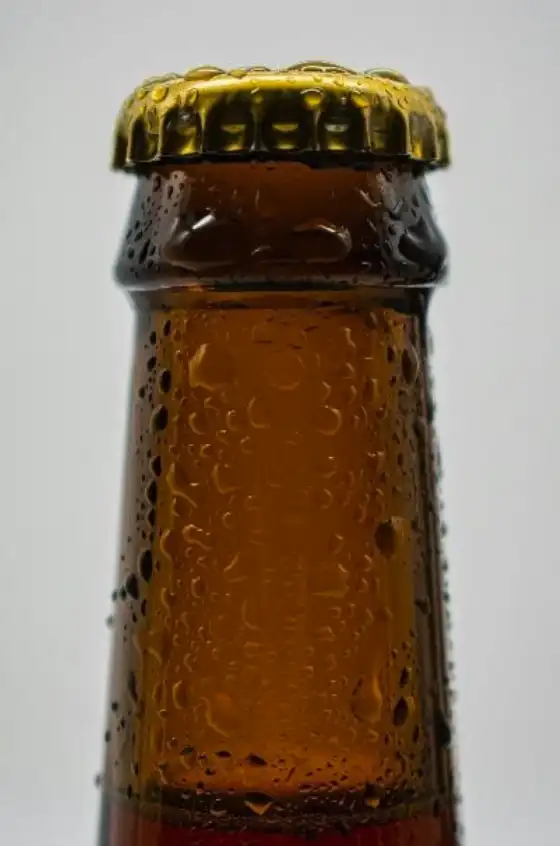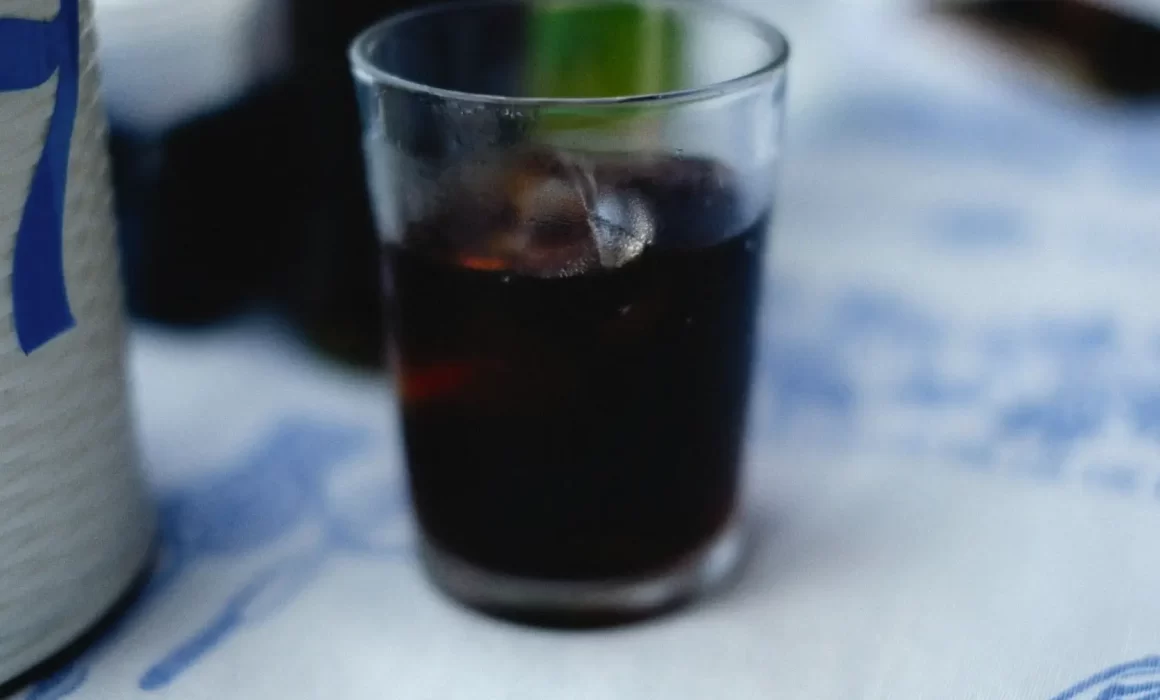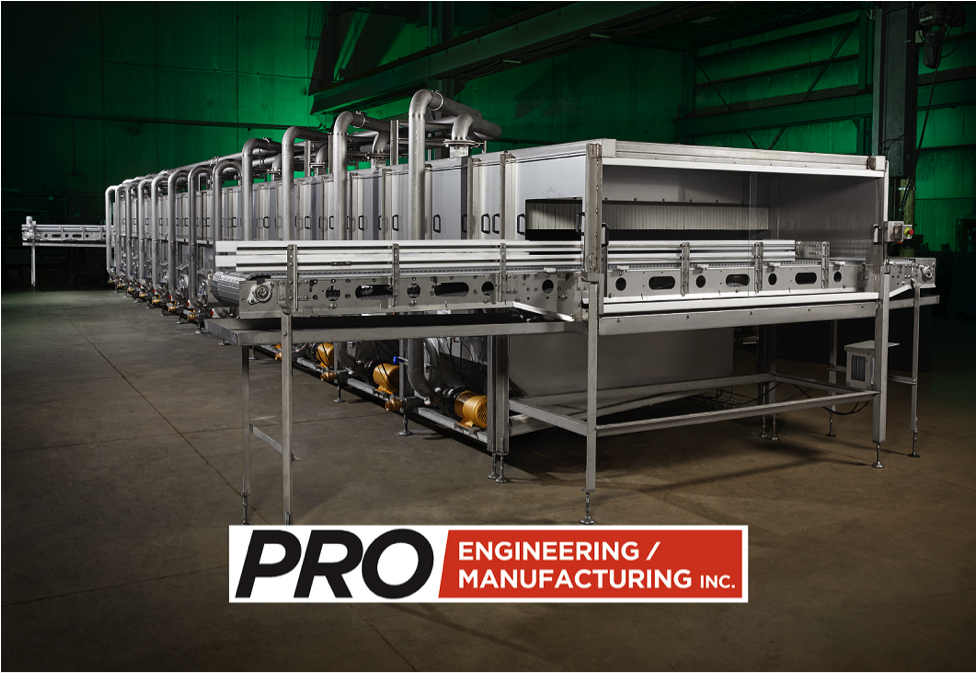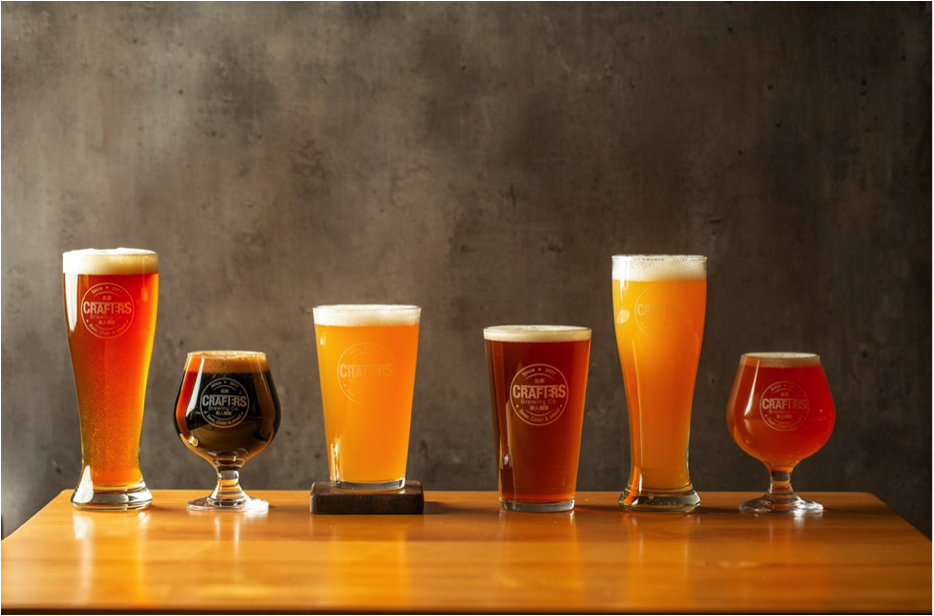From Cola to Kombucha: The Beverage Hall of Fame and the Pasteurization Power That Defined Every Decade
Sponsored by PRO Engineering / Manufacturing Inc.
Leader in beverage Tunnel & Batch Pasteurizers
A nostalgic timeline — from 1950s colas to 1990s iced teas and today’s kombucha boom — showing how pasteurization quietly kept the beverage world moving forward.
Table of Contents
1. Introduction
Every era has a drink that defines it — that one sip that captures the mood, culture, and innovation of its time. From the creamy fizz of 1950s cola to the probiotic tang of a modern kombucha, beverages have always mirrored the evolution of society.
Yet, beneath this flavorful timeline runs an invisible current — pasteurization, the unsung hero that has preserved flavor, safety, and shelf life across decades.
Today, as brands innovate faster than ever, companies like PRO Engineering / Manufacturing Inc. continue to evolve pasteurization technology — from tunnel pasteurizers for high-volume production to batch systems that empower craft brewers and small-batch creators.
Let’s raise a glass to the Beverage Hall of Fame — and the quiet technology that’s kept our favorite drinks fresh through every decade.
2. The 1950s: The Golden Age of Soda Fountains
The 1950s were defined by optimism — rock ‘n’ roll, drive-in theaters, and soda fountains where cola reigned supreme. Drinks like Coca-Cola and Pepsi weren’t just beverages; they were cultural statements.
But behind the bubbles was innovation in mass production. Beverage companies began using early tunnel pasteurization systems, ensuring that carbonated beverages could be bottled and distributed nationwide without losing taste or fizz.
- Why it mattered: Pasteurization allowed colas to be safely transported over long distances and stored for months — a vital step in transforming soda from a local treat into a global phenomenon.
- Fun fact: The first modern bottling lines appeared during this decade, and with them, the need for efficient pasteurization skyrocketed.
Even today, PRO Engineering’s Tunnel Pasteurizers continue this legacy — providing consistent temperature control and energy efficiency that preserves carbonation and taste in every bottle.
3. The 1960s: The Rise of Bottled Convenience
By the 1960s, “convenience” was king. Soda cans hit the shelves, ready-to-drink lemonades and root beers flourished, and pasteurization systems became more sophisticated.
Manufacturers began adopting compact tunnel pasteurizers and experimenting with modular systems — the forerunners of today’s SlimLine Pasteurizers from PRO Engineering. These systems delivered high-quality results while conserving water and power — a crucial advantage for beverage producers expanding across continents.
- Defining drink: Bottled lemon-lime sodas like Sprite and 7UP captured the youth market.
- Cultural snapshot: The “pop” sound of a bottle cap became synonymous with carefree leisure.
Pasteurization made this freedom possible — ensuring drinks stayed bright and bubbly on store shelves across the world.
4. The 1970s: Fitness Fads and the Juice Craze
Health consciousness began to take hold. People swapped some sodas for fruit juices, and the orange juice carton became a morning staple. The first sports drinks emerged, designed to replace electrolytes and hydration.
But with fruit-based beverages came new challenges: bacteria and spoilage risks. Pasteurization stepped up to the plate. Gentle heat treatment-maintained flavor while killing pathogens — keeping juices fresh without sacrificing nutritional integrity.
Batch pasteurization, such as PRO’s Single-Temp and Triple-Temp Batch Pasteurizers, allowed smaller juice producers to craft products that balanced health and safety.
- Defining drink: Tropicana, Gatorade, and other natural juices.
- Industry shift: The idea that “fresh” could also be “safe.”
5. The 1980s: Caffeine Culture and Energy Beginnings
The 1980s ran on caffeine — colas, coffees, and the first prototypes of energy drinks. Beverage innovation accelerated as global distribution chains grew, and brands needed consistent pasteurization to maintain taste across millions of units.
Enter large tunnel pasteurization systems, similar to PRO Engineering’s Large Tunnel Pasteurizers — designed for high-output operations. These systems ensured uniform temperature zones, preventing over-pasteurization (which can dull flavor) while guaranteeing safety.
- Defining drink: Classic Coca-Cola vs. “New Coke” (and the taste wars that followed).
- Behind the scenes: Modern pasteurization’s precision became the secret ingredient for consistency.
As caffeine fueled the decade, pasteurization fueled the industry — making mass distribution possible without compromising flavor or carbonation.
6. The 1990s: Iced Teas and the Bottled Water Boom
The ‘90s were all about “refreshment without guilt.” Iced teas, flavored waters, and the beginnings of bottled water dominance hit the shelves. Lipton, Snapple, and Arizona redefined “cool.”
Yet, tea-based and low-sugar drinks introduced microbial challenges — particularly from natural ingredients. Pasteurization had to become even more adaptable.
PRO Engineering’s batch and tunnel pasteurizers evolved alongside the industry. Their SlimLine systems offered efficiency for smaller beverage lines, while Large Tunnel Pasteurizers met the demand of beverage giants scaling globally.
- Defining drink: Snapple’s “Made from the Best Stuff on Earth.”
- Pasteurization’s role: Keeping those natural fruit teas shelf-stable without artificial preservatives.
Consumers got purity and flavor — all thanks to controlled pasteurization.
7. The 2000s: Smoothies and Functional Beverages
The turn of the millennium introduced smoothies, vitamin waters, and protein-packed functional beverages. Health and performance became marketing gold.
Pasteurization had to balance safety with the need to preserve vitamins, probiotics, and delicate ingredients. Batch pasteurizers became the go-to for smaller, nutrient-dense products, offering precision control over heat exposure.
PRO Engineering’s Batch Pasteurizers provided beverage startups with the same quality control that large corporations enjoyed — democratizing food safety for the wellness boom.
- Defining drink: Vitaminwater, Odwalla, Naked Juice.
- Key benefit: Gentle pasteurization preserved both nutrition and shelf life — a win for consumers and manufacturers alike.
8. The 2010s: Cold Brews and Kombucha Take Center Stage
In the 2010s, consumers wanted authenticity — small-batch, artisanal, “crafted” beverages with natural fermentation or cold-brewed flavor. Kombucha, cold brew coffee, and craft beers exploded in popularity.
But with this artisanal trend came major safety risks: natural fermentation can introduce unwanted microbes. Pasteurization was crucial for scaling production safely while retaining that “handcrafted” taste.
PRO Engineering’s Triple-Temp Batch Pasteurizers allowed kombucha and craft beverage producers to fine-tune temperature profiles for each batch, maintaining live culture viability while reducing spoilage risk.
- Defining drink: Kombucha (GT’s, Health-Ade) and cold brew coffee.
- Industry secret: Many “craft” beverages quietly rely on small-scale batch pasteurization to stay safe — without consumers ever realizing it.
Pasteurization evolved from industrial necessity to artisan ally.
9. The 2020s: Craft, Sustainability, and Smarter Pasteurization
Today’s beverage scene is a fusion of science, sustainability, and personalization. We’re seeing a wave of CBD drinks, low-alcohol beverages, and functional tonics that blend technology with nature.
This is where PRO Engineering / Manufacturing Inc. truly shines. Their modern tunnel and batch pasteurizers optimize energy, water, and space — helping beverage brands meet eco-conscious goals without compromising quality.
- Defining drink: Plant-based milks, canned mocktails, CBD seltzers.
- Trend spotlight: Sustainability in beverage manufacturing.
With pasteurization systems like PRO’s SlimLine and Large Tunnel Pasteurizers, today’s manufacturers can achieve consistency, safety, and environmental responsibility all in one system.
10. Why Pasteurization Deserves Its Place in the Beverage Hall of Fame
While marketing campaigns and celebrity endorsements often get into the spotlight, pasteurization is the unseen hero that has kept the global beverage machine running for over a century.
Why it matters:
- It prevents spoilage and contamination.
- It preserves carbonation, texture, and flavor.
- It enables global distribution and longer shelf life.
- It allows both mass production and craft creation to coexist safely.
Without pasteurization, many iconic beverages would have remained local novelties instead of household names.
Today, PRO Engineering / Manufacturing Inc. continues that legacy — blending decades of innovation with cutting-edge technology that supports both global bottlers and small-batch brewers alike.
11. PRO Engineering / Manufacturing Inc.: Pioneering Pasteurization for Every Era
For more than 40 years, PRO Engineering has been a trusted name in the beverage industry. Their mission: to engineer pasteurization systems that meet every production scale, from multinational beverage companies to microbreweries.
Their Core Solutions:
- Tunnel Pasteurizers: Ideal for continuous, high-volume production lines.
- Large Tunnel Pasteurizers: Designed for industrial-scale beverage companies.
- SlimLine Pasteurizers: Compact, energy-efficient systems perfect for growing brands.
- Batch Pasteurizers: Flexible systems for smaller production runs or craft products.
- Single-Temp and Triple-Temp options: Delivering precision control for delicate or complex beverage formulations.
Whether it’s the sparkling soda of the 1950s or the probiotic kombucha of today, PRO’s technology continues to evolve — ensuring every generation’s favorite drink is delivered safely and consistently.
12. FAQs
1. What is pasteurization and why is it important for beverages?
Pasteurization is a controlled heating process that kills harmful bacteria while maintaining product quality. It’s essential for ensuring beverage safety, stability, and taste — especially for drinks containing natural ingredients.
2. What types of beverages use tunnel pasteurization?
Tunnel pasteurization is ideal for carbonated and high-volume beverages like sodas, beers, and sparkling waters. It offers consistent results for millions of bottles or cans per day, ensuring shelf stability without altering taste.
3. What makes batch pasteurization ideal for craft beverages?
Batch pasteurization offers smaller-scale producers flexibility to control temperature precisely, preserving delicate flavors in kombucha, cold brew, juices, and small-batch beers. It’s the perfect system for quality-driven brands.
4. How do PRO Engineering pasteurizers differ from competitors?
PRO Engineering’s systems are designed for energy efficiency, precise temperature control, and custom scalability. From their SlimLine Tunnel Pasteurizers to Triple-Temp Batch systems, they combine reliability with modern innovation.
5. How can beverage companies choose the right pasteurizer?
It depends on scale, product type, and distribution goals. Large manufacturers often benefit from tunnel pasteurizers, while craft producers thrive with batch pasteurization. PRO Engineering helps clients choose and configure systems tailored to their production needs.
13. Conclusion
From the soda fountains of the 1950s to the kombucha taps of today, beverages have defined our culture, habits, and memories. Yet, one innovation has quietly stood behind every era’s iconic drink — pasteurization.
It’s the process that’s kept our colas crisp, our juices safe, and our kombucha shelf stable. And it’s still evolving, thanks to leaders like PRO Engineering / Manufacturing Inc., whose state-of-the-art tunnel and batch pasteurization systems power both global brands and craft creators alike.
The Beverage Hall of Fame may celebrate taste and nostalgia — but behind every legendary drink is the silent art of pasteurization, ensuring that every sip, in every decade, remains just as refreshing as the first.
Sponsored by PRO Engineering / Manufacturing Inc.
Innovators in tunnel and batch pasteurization systems — preserving the world’s favorite beverages for over 40 years.
👉 Explore their technology: https://prowm.com/
RESOURCES:
Government Links
Wikipedia Links
ABOUT PRO ENGINEERING / MANUFACTURING INC.
Trusted | Knowledge | Quality
We have been involved in pasteurizers since 1977.
PRO Engineering / Manufacturing Inc. has developed a range of small, medium, and large-sized tunnel & batch pasteurizers to fit the needs of BrewMasters and Beverage Makers. When our customers asked for more compact as well as full-size tunnel pasteurizers, PRO developed models to fit our customers’ needs. Then our customers needed a batch pasteurizer. We now provide batch pasteurizers; PRO is a business that continually innovates to meet customer needs.
For more than 40 years, we have been delivering solutions for beverage product shelf stability and consumption safety.
Edward A. Michalski CEO
Ed Michalski started his career in the beverage industry by designing stainless steel, higher flow, spray headers for Pabst Brewing. Along with the header design he also developed a process to produce the new headers.
Ed, along with his brother David, formed PRO Engineering / Manufacturing Inc. Based on what they learned by re-designing and refurbishing other manufacturers’ pasteurizers, Ed and PRO started to offer the pasteurizer marketplace superior new pasteurizers. PRO Engineering / Manufacturing Inc. has been designing and manufacturing great pasteurizers for over four decades.
For more information on tunnel and batch pasteurization contact PRO Engineering / Manufacturing, Inc. at [email protected] or call (414) 362-1500 and ask for Ed Michalski, CEO.
Partner with a PRO!… PRO Engineering / Manufacturing Inc.
Internal Resources:














